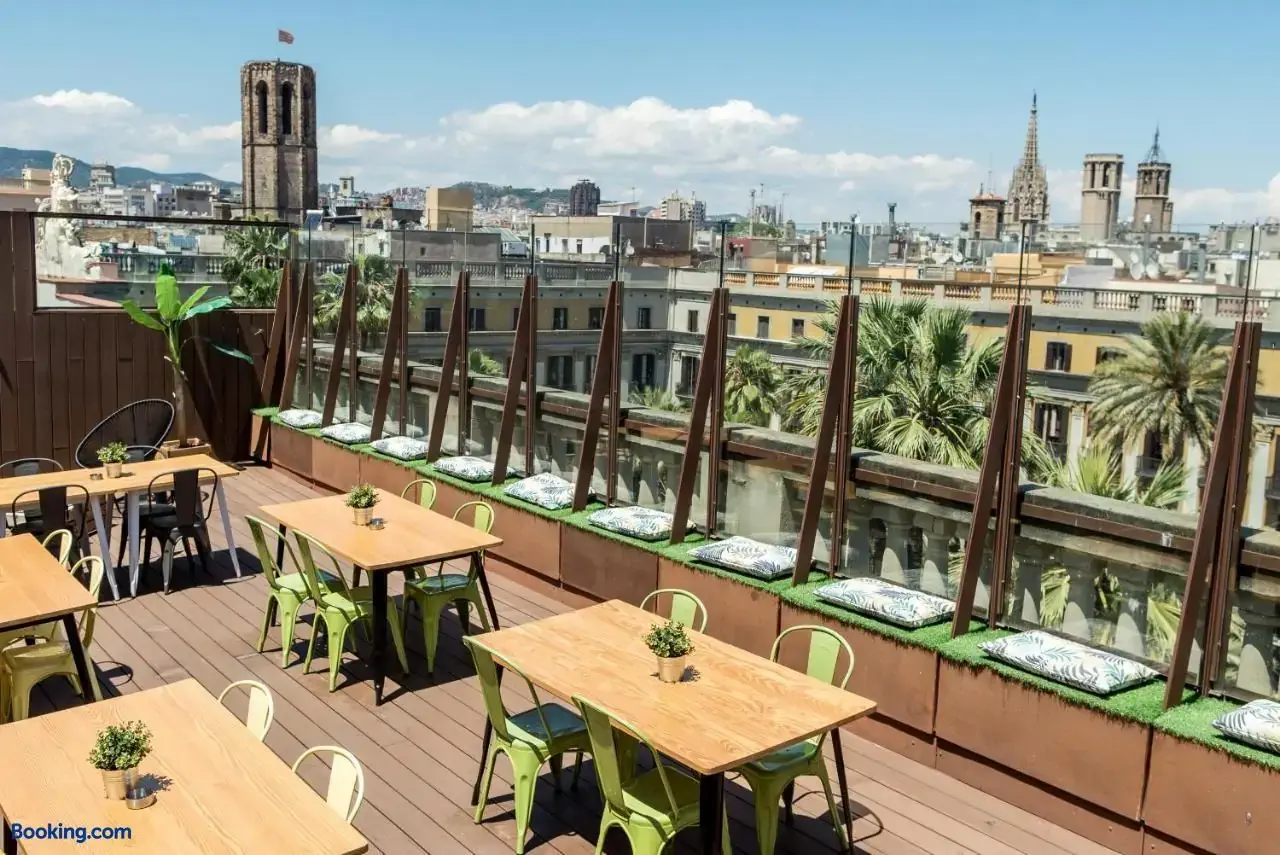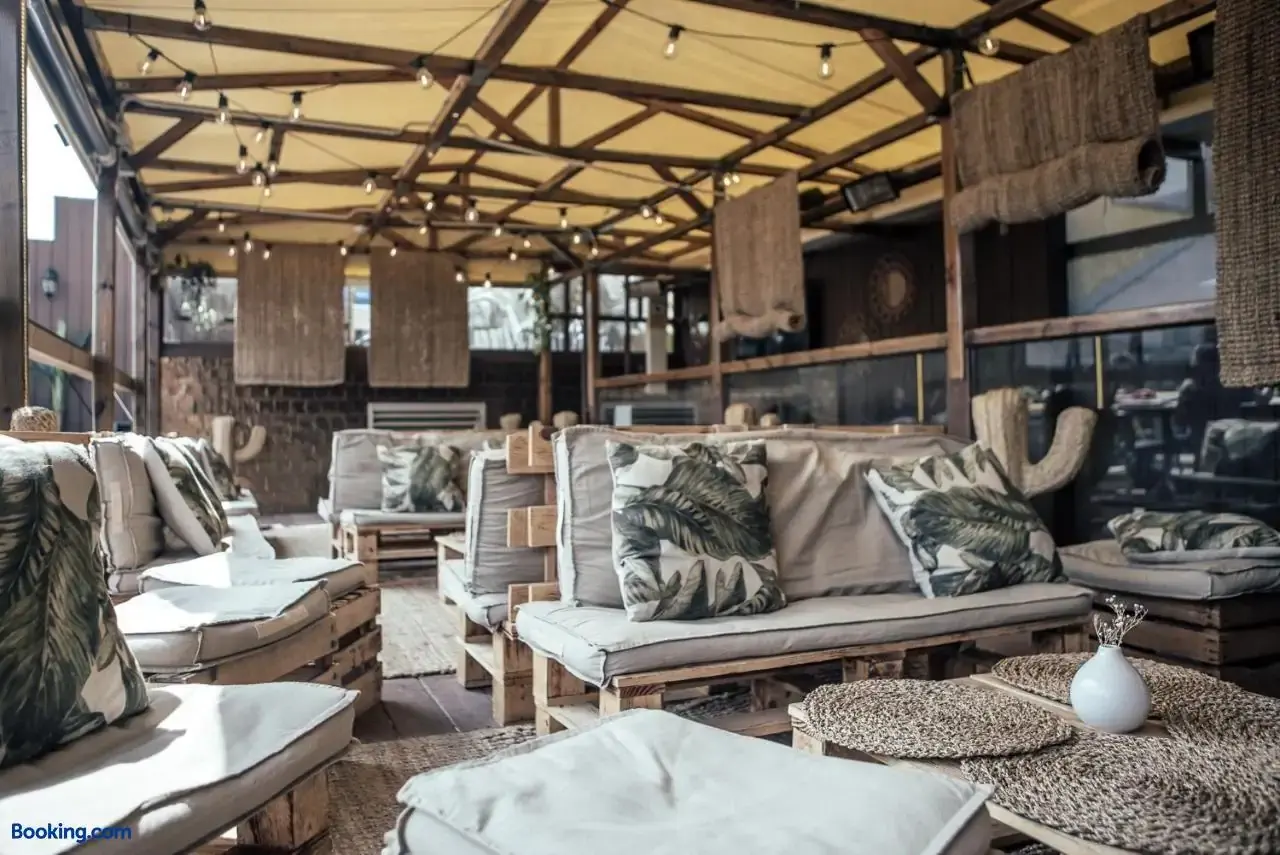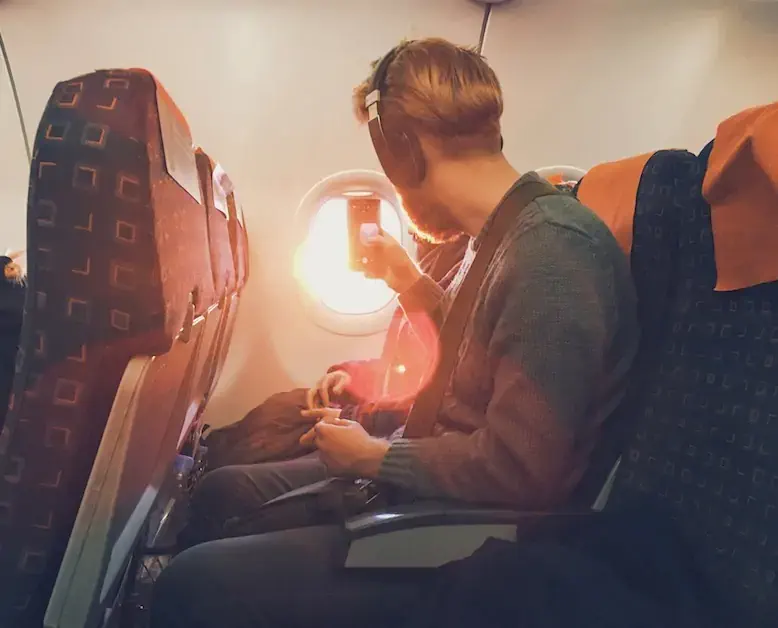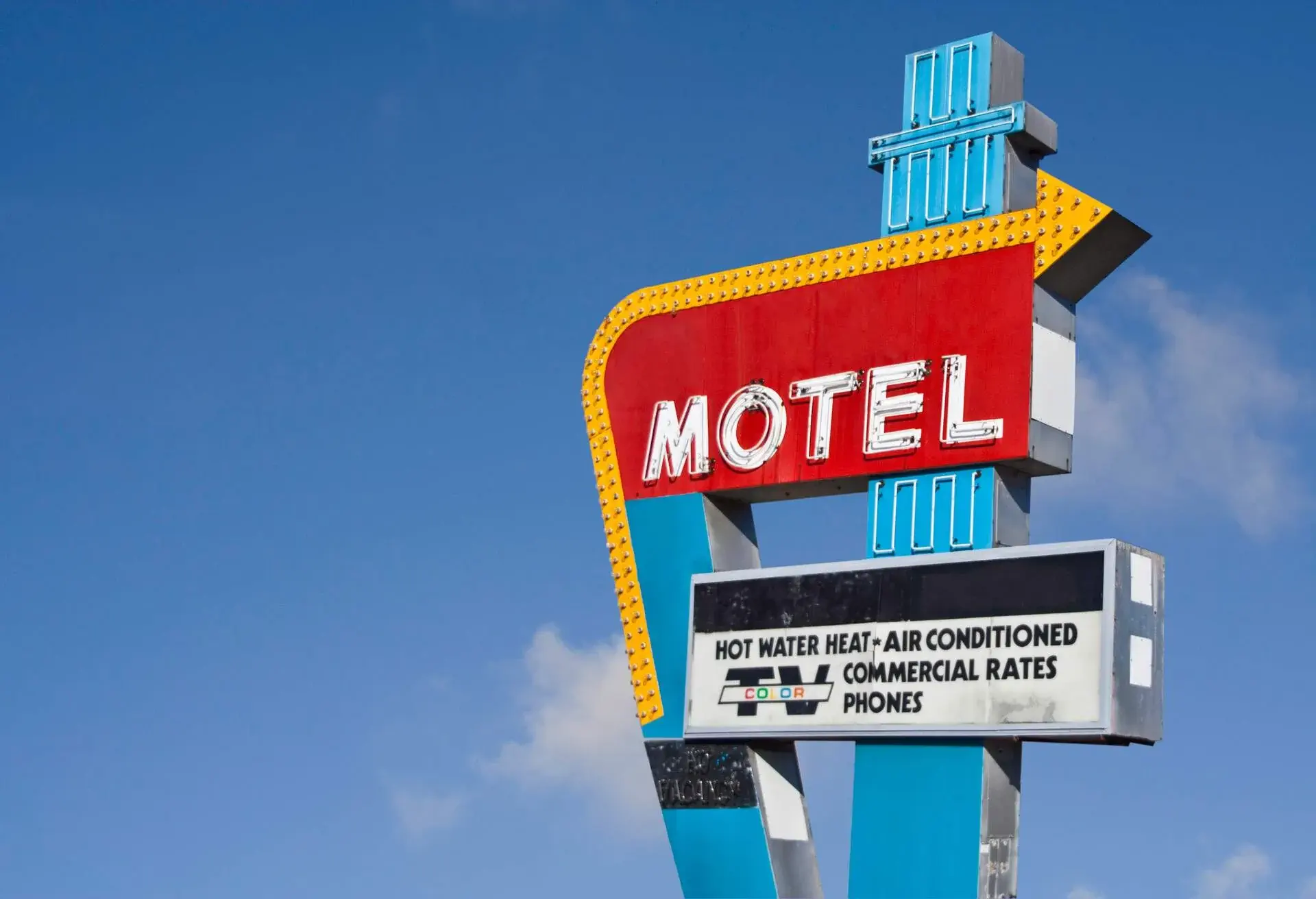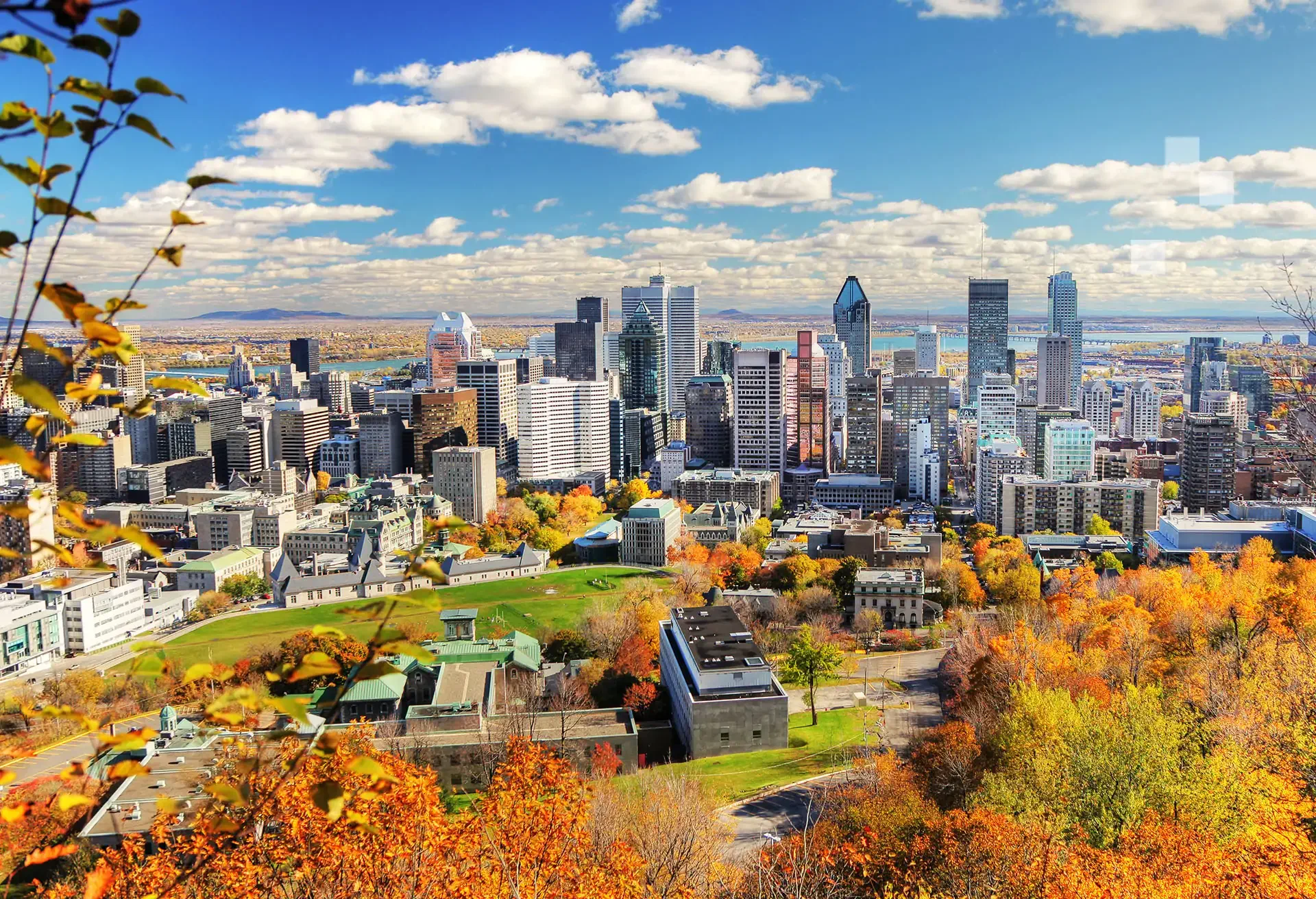A hostel is often just like a hotel, except you probably have to share a bathroom with other guests. For the lowest rates, you can also opt to share a room or dorm. Here, I’ve rounded up everything there is to know about hostels, including how to pick the right one for your trip.
What is a hostel?
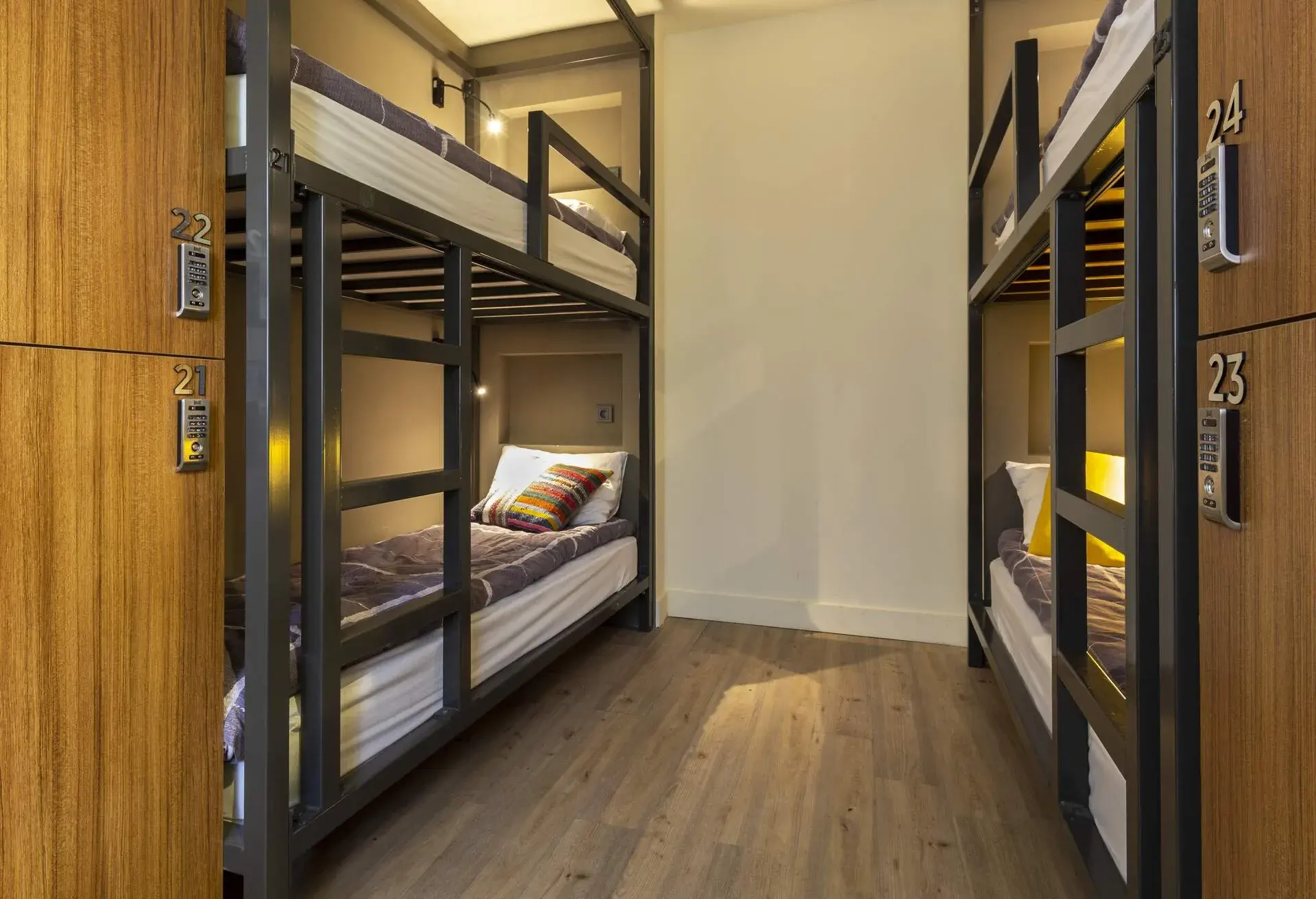
A hostel is a type of budget-friendly lodging. Hostels usually offer dormitory-style rooms with bunk beds as well as private rooms. You’ll generally be provided with bedding and a locker for valuables, but otherwise, things are pretty communal and basic. For example, you’ll generally have to share a bathroom (though not always, especially if you book a private room).
Hostels are a more communal way of vacationing and offer common areas like a kitchen and a lounge. They’re particularly popular with backpackers, digital nomads and people on longer, slower journeys. As a result, they’re often lively and social. As long as you can do without some of the amenities you might find at a hotel, and aren’t craving privacy and solitude, they’re a great option to save cash and meet fellow travelers.
What are the key features of a hostel?
Some of the key features of a hostel include:
- Dorm-style rooms. Expect bunk beds. These types of rooms are almost always the cheapest and many hostels offer both mixed and gender-specific dorms.
- Communal areas. Hostels are very social places, and there’s typically some kind of event happening on any given night. You’ll typically have access to a shared kitchen and lounge space too. Note bathrooms are also generally communal.
- Private rooms. If you don’t mind paying a little more, you can usually opt for a private room. Very similar to a hotel, but expect no frills.
Hostel services and amenities
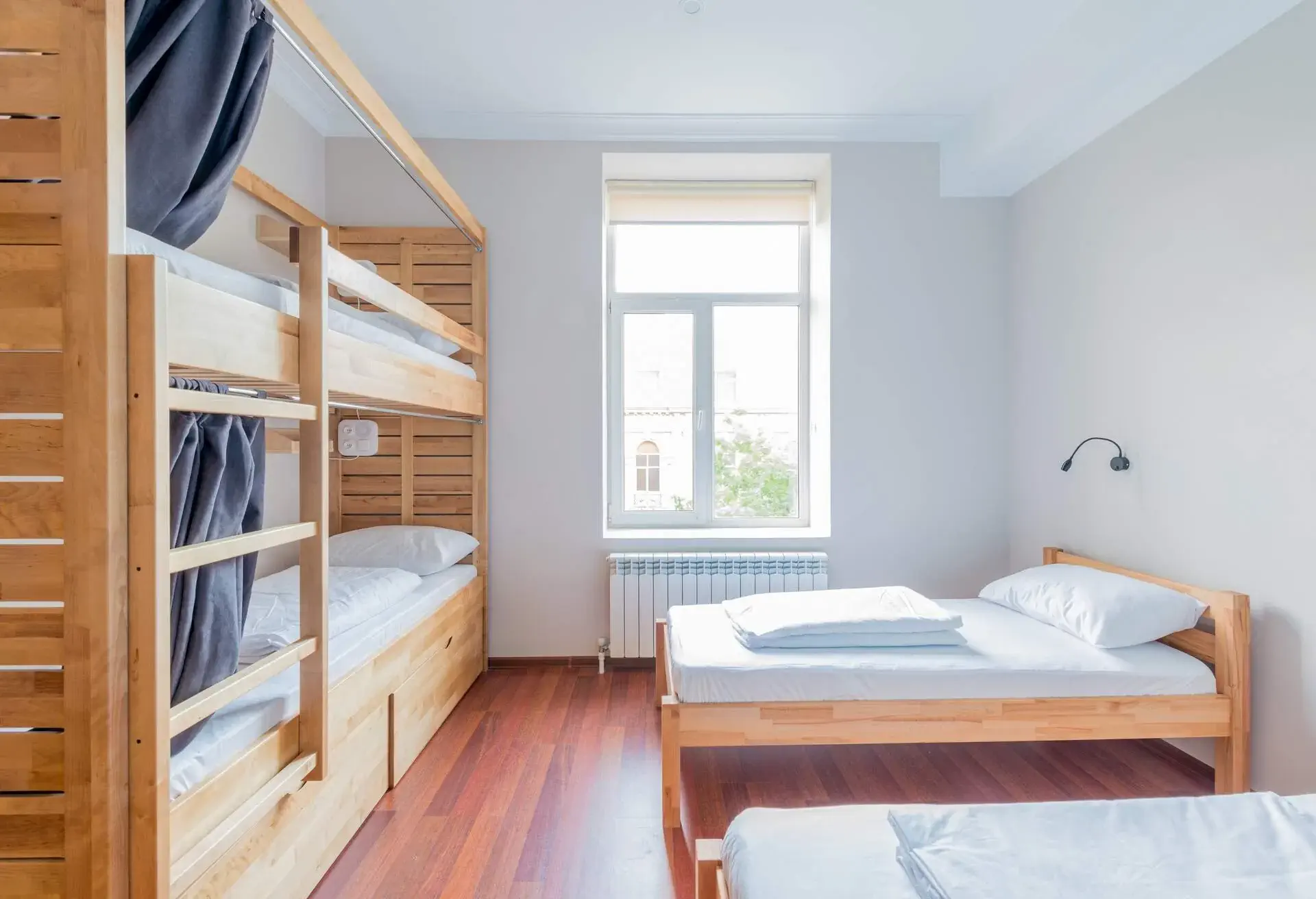
Generally, hostels offer fewer services and amenities than you’d find at a hotel. This doesn’t mean they skimp on offering facilities for travelers, though. At many hostels, you’ll find:
- Free WiFi
- Laundry rooms
- Luggage storage
- A lounge area, usually with a TV or other games
- A bar, lobby, or library
- A kitchen
In terms of in-room amenities, most hostel rooms focus on the basics, with just a bed and bedding, a power source for charging devices and a bed light. Many now offer free towels, too – although the cheapest beds may not. In which case they’re usually available for a small fee or even just a returnable deposit. You’ll likely find a telephone available for public use, and an iron and ironing board, again usually for a fee.
Are hostels always communal?
Unlike hotels, hostels are all about hanging out in their communal spaces and meeting people. As soon as you walk into a hostel, you can feel the difference — there are usually people socializing in the lounge or entryway, preparing meals in the kitchen, and making plans to explore together.
For people traveling solo or people who love making new friends when they go places, hostels are a great option.
Travel writer, Justine Harrington
I’ve met people from all over the world when staying in hostels. Cooking in kitchens with people from a dozen different countries, trading endless stories over endless glasses of wine. Bonding with people of all different cultures, backgrounds, ethnicities, and religions. Truly, some of my most memorable travel experiences have occurred in hostels.
Why are hostels cheaper than hotels?
Even in more upscale hostels, you can expect to pay less for a room than you would at a 3-star hotel. This is especially true if you stay in a shared dorm, but will likely also apply with a private room too. Facilities and amenities are usually shared – bathrooms, bedrooms, kitchen and lounge – and self service. So if you cook yourself dinner, you’ll be expected to wash your dishes too.
For this reason, if money’s tight or you’d rather spend it on experiences, staying at a hostel is a great idea. And with more and more hostels now offering private rooms, you have more flexibility than ever in how you stay. But if you’re looking to spend as little money as possible, book a bed in a dorm.
Are hostels safe?
Hostels are generally safe. All guests have to provide a legitimate, valid ID like a passport to stay. Of course, if you’re staying in a shared room with people you don’t know, there’s always an increased risk of theft. But that’s why hostels offer lockers, so you can store your valuables at night. Many hostels also have 24-hour reception, just like hotels do.
A good way to ensure a hostel is up to your standards is to check KAYAK’s hotel reviews and scores before you book. Customer reviews like these help provide peace of mind that you’re staying in a trustworthy place, with ample security measures.
Can anyone stay at a hostel?
Many hostels have age limits in place, though they can vary depending on the country you’re in and the room you want. The majority of hostels prohibit guests under 18 from staying in dorms, although private rooms are usually fine. In some places, you may encounter a 21-and-under limit; in others, it may be as low as 16.
Some hostels may even restrict guests to 30 or 40 years old and younger. These tend to be places that have a bar inside and are aiming for a youthful vibe – they’re pretty rare though.
In general then, if you’re over 18 you’ll be able to book a bed in a hostel. If you want to be sure though, as always it’s best to check with the hostel direct before you book.
What are the benefits of staying at a hostel?
As long as you know what to expect, there are lots of reasons to choose a hostel over a hotel.
- Affordability: There have been many times in my life when I’ve been on a strict budget but still wanted to explore new places, and hostels have been a godsend in those cases. For those of us who don’t have a lot of money to travel, staying in a hostel can mean the difference between going totally broke and being able to stay under budget.
- Social interactions: I’m a bit of an introvert and sometimes struggle to meet people when I travel, so for me, one of the biggest benefits to staying in a hostel is the chance to interact with other travelers. I also love meeting people from different cultures, and hostels are always brimming with travelers from every corner of the world. I’ve met lots of people in hostels that I never would have staying in a hotel.
- Flexibility: Not sure how long you want to stay? Hostels are often much more flexible in terms of booking dates, meaning you can stay as long or as little as you like. So if you fall in love with a place, you can hang around longer. On my first visit to Tokyo, I booked a room for three nights at Nui. and ended up staying a month!
- Location: Hostels have a great habit of being located in the heart of the action. That means they’re usually close to transport hubs, major attractions and lively nightlife. That makes them not only convenient but cost saving, as you can usually reach everything by foot.
- Local knowledge: In my experiences, almost all hostel staff are either young and local or travelers lured in by a place and now working their for free digs. This makes them a rich source of local knowledge and travel info – tap into them and you’ll often find fantastic local experiences missed my most.
Are all hostels the same?
Not all hostels are created equal. There are some hostels that are truly budget-friendly, with cheap dorm rooms and little to no amenities. There are some that are considered design or luxury hostels, and these more closely resemble a trendy boutique hotel, with plenty of private rooms and a few amenities. And there are all kinds of hostels in between.
- Budget hostels: The classic – no frills and affordable, designed for the basic, cheapest experience. Expect dorm rooms, simple, communal amenities and very few extras. Location may also suffer.
- Party hostels: Targeting the young and lively, party hostels are not for shy and retiring types. Expect music, drinking, organized games and activities, pub and club crawls. One of the very best is Kabul Party Hostel in Barcelona. Located in a historic building, it hosts endless events and has an incredible rooftop bar restaurant (pictured above).
- Eco hostels: Environmentally conscious hostels with a focus on sustainability are becoming commonplace. Expect recycling, green practices, low-impact travel workshops, and a focus on organic, vegetarian and vegan food. These tend to offer quieter, slower-paced stays.
- Boutique hostels: Stylish, design-led, often with a local or cultural focus, like the lovely AMA Hostel in Bangkok, one of my favorites. Expect unique decor, even themed rooms, and a more curated experience. Amenities can vary from basic to extravagant.
- Poshtels: It’s a terrible epithet, but so-called posters—luxury hostels—elevate the standard hostel experience. They offer options for ensuite rooms, better-quality bedding and amenities, and more stylish decor. They are more expensive than standard hostels but often still cheaper than equivalent-quality hotels.
- Digital nomad hostels: With the growing trend for remote working and the flood of digital nomads wandering the world, work-focused hostels are growing in number. Expect dedicated workspaces, fast and reliable internet, and regular networking events. My go-to is Take Hostel Conil in Spain’s incredible Andalusia – brand new, top-end workspaces and surf and sun on tap when the working day is done.
Hostel vs. Hotel – what’s the difference?
| Feature | Hostel | Hotel |
|---|---|---|
| Price | Generally cheaper | Generally more expensive |
| Rooms | Shared dorms and private rooms | Just private rooms |
| Privacy | Low – very communal | High – with private rooms and bathrooms |
| Amenities | Shared facilities like kitchens and bathrooms | Private en-suites and full service with concierge, room service, daily housekeeping |
| Security | Lockers, friendly staff (sometimes 24/7) | Generally higher, with 24/7 front desk and security staff |
| Clientele | Typically younger travelers, backpackers, digital nomads, solo travelers | Typically business people, families, couples and older travelers |
| Atmosphere | Generally communal, social and lively (can be loud), group activities | Quieter and more reserved |
Of course, the hostel experience isn’t the right fit for everyone. If you’d rather stay in a hotel or motel, but would still like to meet new people and get out and socialize, use KAYAK’s Hotel Heat Map. This super-helpful tool shows you which hotels are near all the best restaurants, shopping, nightlife, and cultural attractions. So, you can pick a hotel that’s located as close to all the action as possible.
Packing tips for staying at a hostel
Staying in a hostel can sometimes be as much a necessity as a choice. Sharing with other people comes with its own unique set of challenges, but there are things you can pack that will soften the communal experience.
- Noise-canceling headphones: Top of the list, something that gives you instant peace and quiet from the world around you. Whether it’s watching a movie on your phone or listening to music as you drift off to sleep. Effective against late arrivals, early risers and snorers.
- Earplugs and eye mask: See all of the above, except you don’t need a charged battery for earplugs or an eye mask. Both are great for sleeping in particular, but earplugs are also useful for taking the edge off loud music in clubs and at gigs.
- Flip flops: Or sliders, or shower sandals – footwear you can use to wander the hostel and wear in the showers. Even in the nicest hostels, shared showers can be a bit grim so a protective barrier between foot and floor is essential.
- Quick-drying towel: Many hostels include or rent towels out nowadays, but having your own compact, lightweight quick-dry microfiber towel is a smarter, more hygienic option.
- Headlamp: Lights your path and keeps your hands free as you pick you way through the dorm in the dark on a late night bar or bathroom run. And it doesn’t run down the battery on your phone.
- Padlock: Hostels have lockers, but you never know how solid they are and what condition they’ll be in. Keeping a spare padlock has saved me more than once from having to leave my stuff vulnerable. Combination locks are best, as there aren’t any keys to lose.
Tips for booking the right hostel
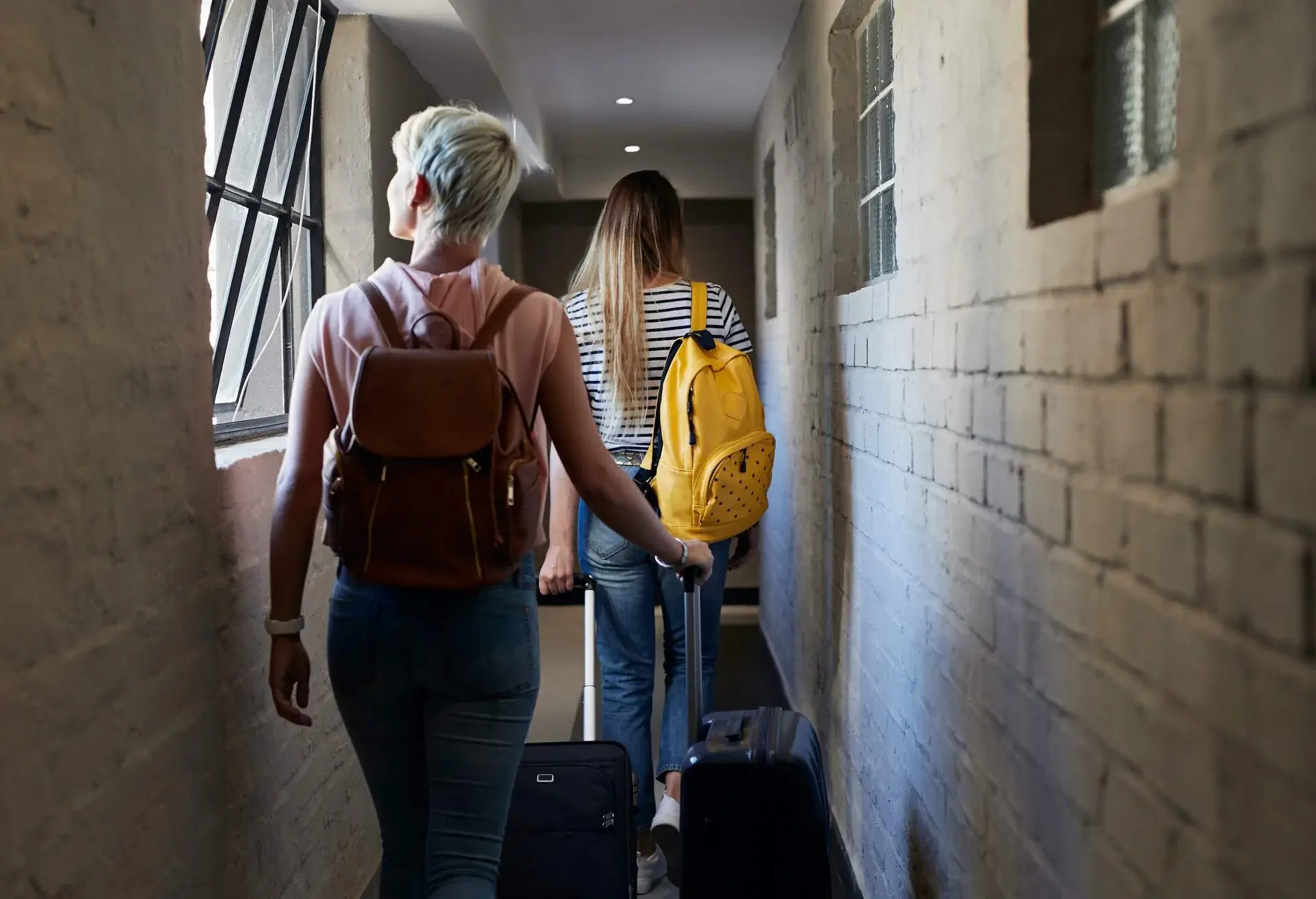
My advice is to decide which type of hostel you want to stay in, so that you don’t end up blowing your budget or staying somewhere that’s less upscale than you expected. If money is a real factor and you’re traveling on a strict budget, seek out a hostel that has more dorm rooms than private rooms and doesn’t come with extras.
If, on the other hand, you want to stay somewhere a bit nicer, you can search for ‘luxury hostels’ in any given destination. Decide on the hostel experience you want before you book.
Great cities to stay in a hostel
Some of the most exciting cities to stay in a hostel include:
These places are known for their buzzworthy hostels that range from cool boutique-style hostels with unique amenities to luxury hostels that feel more upscale resort than backpacker’s lodging.
Hostel FAQs
Generally speaking, you won’t be able to book a dorm room if you’re staying at a hostel with children. But most hostels do welcome children as long as you book a private room. Some party-centric hostels may only take guests that are over the age of 18 (but you wouldn’t want to stay in these with children anyway).
Most hostels have a no-pets policy for a range of reasons. Primary of which is the communal nature of hostels with lots of shared spaces where pets could pose a problem, from misbehaving to messing to causing allergies. You may find outdoors and eco focused hostels are more welcoming to pets, but you should check with the hostel in advance.
Most hostels provide clean sheets, a comforter, and a pillow as part of the room rate, so you don’t need to worry about bringing your own bedding or sleeping bag. Some hostels on the more affordable side of the spectrum may require guests to rent their bedding for a few bucks per night.
Not at all – you’ll find hostels in most major cities around the world, from Asia to Africa, North America to South America. While hostels did first appear in Europe, their communal, affordable and fun approach to travel has made them popular around the world.
Most hostels provide towels, although many might require you to place a deposit or rent the towel for a small fee. In general, you’re better off bringing your own towel to a hostel. Invest in a good quick-dry microfiber towel before your trip – you’ll save money and it’s far more convenient.
As with hotels, there’s no hard and fast rule on when is best to book. If you’re traveling in peak season, book earlier to avoid missing out on a spot altogether. Leave it just a week or two before you go and you’ll likely find higher prices and less availability (say, if you want a private room rather than a mixed dorm). Hostels are often more flexible than hotels, but if you know when you want to go, look early and track prices.
For more ideas on places to stay when you travel, check out the KAYAK guides to making hotel search easier and for something extra special, the most unique hotels in the world.




